
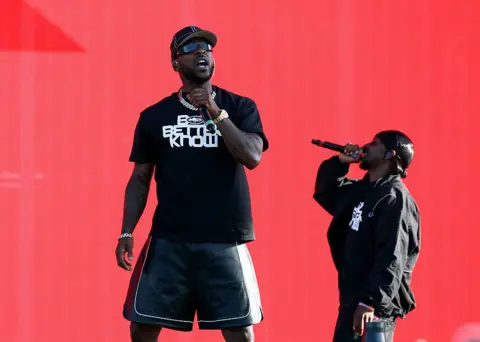 Simone Joyner/Getty Images
Simone Joyner/Getty Images
Boy Better Know performing at this year's Wireless Festival
In 2005, brothers Joseph and Jamie Adenuga were facing uncertainty in the wake of their rap crew disbanding.
While other members started to re-organise themselves, the Tottenham-based siblings decided to pursue music on their own terms - a move that would come to define their careers.
The brothers are now better known as Skepta and JME, and the label they formed was Boy Better Know (BBK).
"They were so influential for rapping in the UK, they showed us we can," Lewisham-based artist Shaybo tells the BBC.
At this time, grime was still a young and developing genre of music that was emerging out of the electronic dance scene.
Up-and-coming British rappers were being signed to major labels to make what the industry considered to be more commercially viable songs.
In other words - not grime.
But the ethos of BBK was to stay independent and stay true to who you are.
"They are incredibly headstrong people and probably saw the pitfalls of signing deals," says RWD magazine founder Dacre Bracey, who has covered grime since its inception.
There are other members of the label - such as Frisco, Jammer and Shorty - but "the genius of BBK is the Adenuga family," he explains.

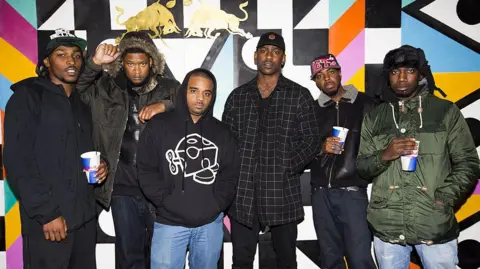 Tristan Fewings/Getty Images
Tristan Fewings/Getty Images
JME (far left) and Skepta (third from right) are the "genius" of BBK, says Dacre Bracey
An early sign of this genius was their T-shirts printed with the Boy Better Know logo.
Designed by JME - who would go on to graduate from the University of Greenwich with a degree in 3D digital design - they were sold all over the capital and helped fund the label in the early days, says Bracey.
"Everyone would wear their T-shirts at school," Shaybo adds.
"BBK gave you the confidence to be unapologetically yourself. I could listen to music I really related to."
Another artist who felt the influence while still a teenager was rapper Capo Lee.
He attended Winchmore School in north London, the same as the Adenuga brothers, although is a few years younger.
"When you're drowning in negativity it's hard to get out of it," he tells the BBC.
"They gave us a lot of hope that things were possible.
"I started as a DJ in secondary school, when I was 13. My friends would come round and we'd try to recreate their vibe in my room."

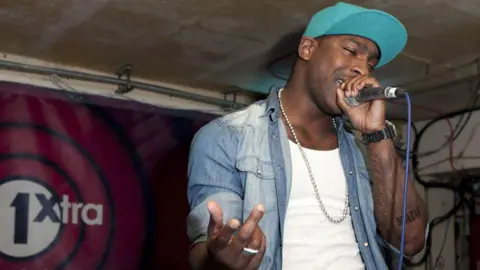 John Rahim/ Shutterstock
John Rahim/ Shutterstock
Skepta (pictured) and JME attended Winchmore School in north London
Things were really starting to grow for the label in the late 2000s.
They'd released dozens of well-received mixtapes, culminating in the track Too Many Man, which broke into the UK singles charts.
But by 2010, the world of grime looked very different.
"The excitement had petered out," Bracey says.
"The police really drew down on the live event aspect of grime so you couldn't perform, and the [government] cracked down on pirate radio.
"A lot of people retired and moved on, or changed genres."
Dizzee Rascal, who once defined the sound of grime with his Mercury Prize-winning debut Boy in da Corner, now made more commercial rap, with songs like Bonkers and Dance Wiv Me.
But Capo Lee still sees this commercial breakthrough as a positive for grime.
"Music was very different in the 2010s, but [the public] got used to seeing black men on the screen," he says.

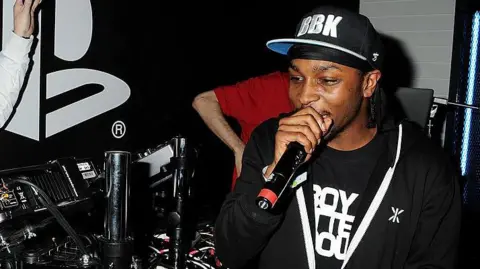 Dave M. Benett/Getty Images
Dave M. Benett/Getty Images
JME has remained proudly independent throughout his career
Even through this quiet period for grime, BBK continued to release music.
"JME has always had this very strong spirit of independence, he's never been seduced by the trappings of fame," says documentary photographer Simon Wheatley, who has known the Adenuga brothers for many years.
Skepta temporarily altered course, signing to Universal where he released his third album Doin' It Again to modest commercial success.
But his sound was watered down and he left the label, returning to grime with the 2014 hit That's Not Me, a song about rejecting commercial pressure and designer brands to be true to yourself.
The music video, which cost £80 to create, scooped a Mobo award - proving Skepta could make it just fine on his own.

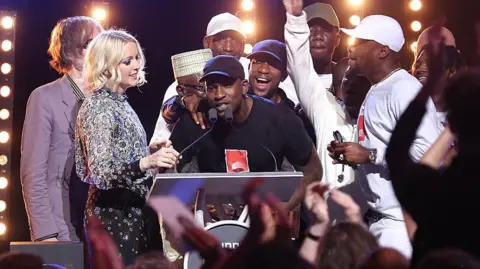 Tim P. Whitby/Getty Images
Tim P. Whitby/Getty Images
Skepta won the Mercury Prize for his 2016 album Konnichiwa
JME's output culminated in his hugely successful 2015 album Integrity, which entered the UK albums chart at number 12.
"I think it's a very aptly named album given the way he is," Wheatley says.
The following year Skepta released his own magnum opus, Konnichiwa. With a sprinkling of Pharrell Williams' production over its undeniable grime core, the album was awarded the Mercury Prize.
Released by BBK, it helped cement grime as a genre being driven on its own terms, away from the influence of major label executives.
It was this period of the label that "opened everyone's eyes and ears again" to grime, Capo Lee tells the BBC.

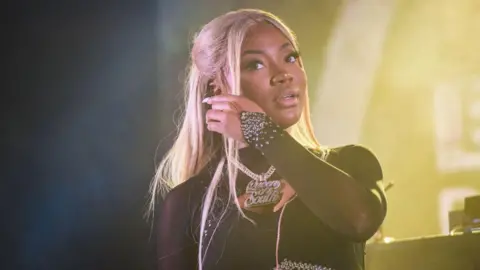 WireImage via Getty Images
WireImage via Getty Images
Shaybo says BBK gave her the confidence to be unapologetically herself
Other artists would follow - Stormzy, Dave, Bugzy Malone - and take the genre in different directions, but they all began on the independent path forged by BBK.
Even an artist like Shaybo, who would not describe herself as a grime MC, says BBK has had a huge impact on her.
"Grime was my foundation, they gave me the skills to rap and the confidence to embrace my heritage," the 29-year-old says.
"When people hear BBK they know it's BBK."
"These things could only have happened in London or the UK, through the melting pot of cultures," Bracey adds.
"That's why BBK are great and magical and special."
Additional reporting by Connie Bowker
.png)
 1 month ago
12
1 month ago
12
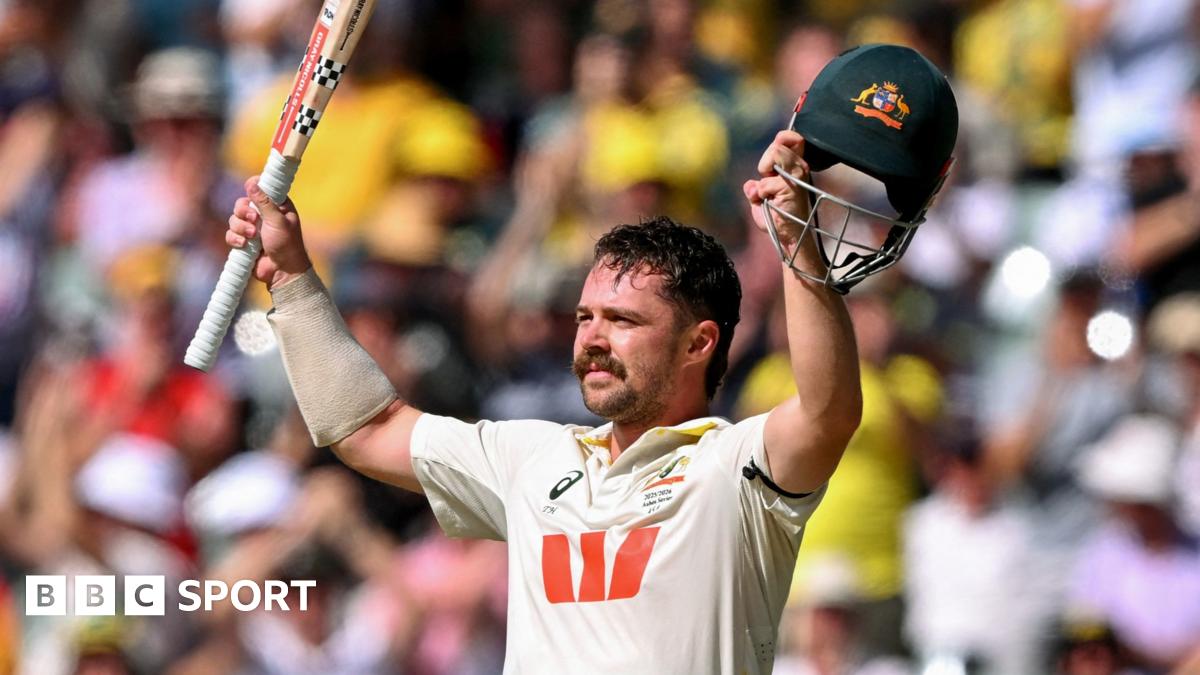
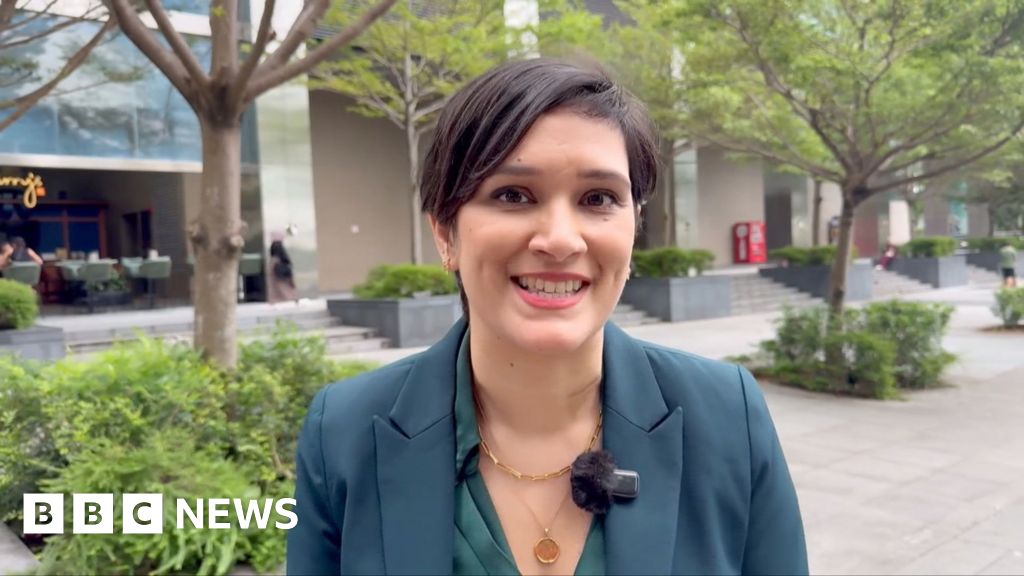
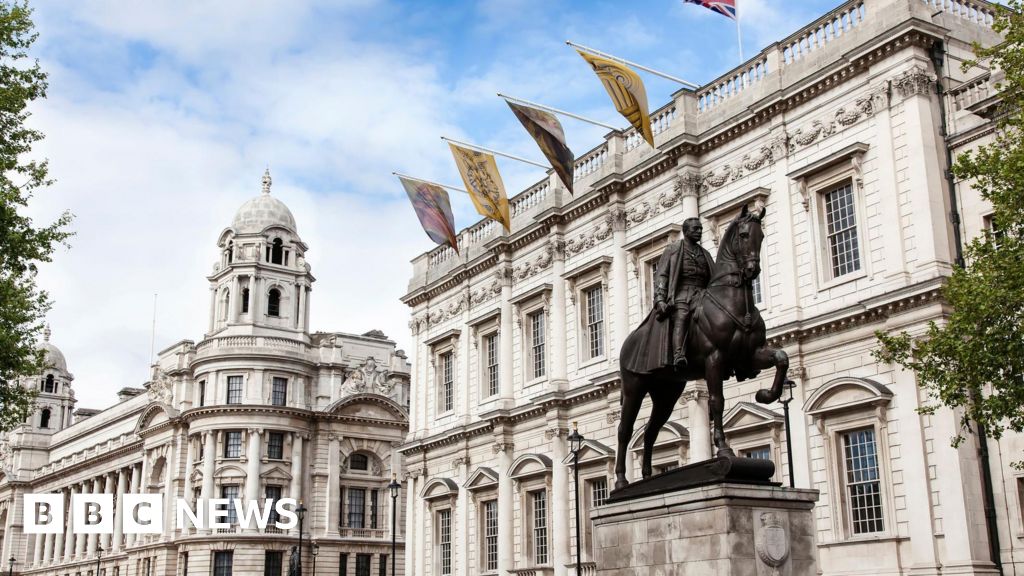





 English (US) ·
English (US) ·